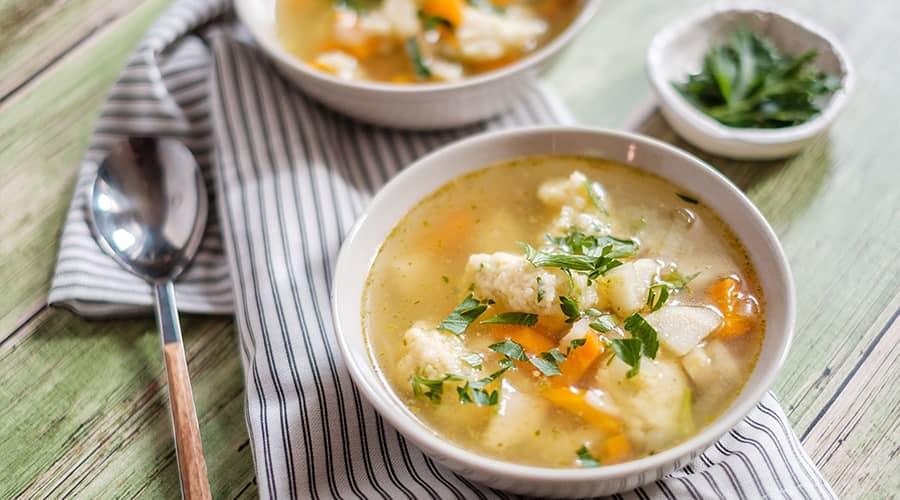
Stomach pain can have many different causes.
Heartburn: heartburn is a burning sensation in the chest or stomach area that is caused by the backflow of stomach acid. It is most commonly caused by weakness or malfunction of the lower esophageal sphincter (esophageal sphincter).
Peptic ulcer: A peptic ulcer is a wound in the lining of the stomach or duodenum that develops as a result of stomach acid. It is most commonly caused by a bacterium called Helicobacter pylori, but it can also be caused by drugs (such as non-steroidal anti-inflammatory drugs) or excessive stress.
Gastritis: Gastritis is inflammation of the stomach lining, which can be acute or chronic. Causes may include alcohol consumption, medications, infections, excessive acid production or autoimmune reactions.
Gastroenteritis: Gastroenteritis is an inflammation of the stomach and intestines, most often caused by a viral infection or bacteria. In addition to stomach pain, it can cause diarrhoea, nausea and vomiting.
Irritable bowel syndrome (IBS): IBS is a functional bowel disorder in which bowel movements are altered. This disorder can cause abdominal pain, bloating, diarrhea or constipation.
Gastroesophageal reflux disease (GERD): GERD is the backflow of stomach contents back into the oesophagus. The acidic contents irritate the lining of the oesophagus, which can lead to stomach pain, an acidic sensation, morning sickness or a burning sensation in the throat.
Diverticulitis: diverticula are small pouches that form on the wall of the large intestine. If these pouches become inflamed or infected, diverticulitis occurs, which can be accompanied by severe abdominal pain, fever, nausea and bloody stools.
If you’re looking for a stomach-friendly meal because you’ve had too much fatty and heavy food lately, this stomach-friendly vegetable soup is for you.
It will definitely soothe the stomach and even help detoxify it. This is a very simple blender soup for stomach upset.
Let’s see what ingredients you’ll need:
-1 litre of water
-25 dkg potatoes
-2 carrots
-1 leek
-1 turnip
-1 celeriac
-1 teaspoon of cumin
-1 teaspoon marjoram
-1 bunch of parsley
-1 pinch of salt
Wash the potatoes and other vegetables thoroughly. Peel and chop what you need. Put them to boil in the water and when it comes to the boil, sprinkle in salt and spices. Then simmer for about 15-20 minutes and remove from the heat. Finally, blend it all together to make a slightly creamy soup. When serving, you can sprinkle with a little parsley green.
This delicious and healthy soup can also help you if your stomach can’t handle heavy food.
What are the best stomach-friendly soups?
Vegetable soup: an easy-to-make soup using easily digestible vegetables such as carrots, cauliflower, potatoes and celery. Season lightly to spare your stomach.
Chicken soup: Chicken meat is an easily digestible source of protein, and the soup can be tasty and nutritious. Choose leaner cuts of meat if possible, and go easy on the seasoning.
Homemade chicken soup: Similar to chicken soup, chicken soup can be a good choice. The nutrients released during the long cooking process can help the stomach to heal.
Apple and celery soup: A light and refreshing soup made with apples and celery tubers. The pectin in the apples can relieve stomach problems.
Oatmeal soup: easy to digest and rich in fibre, oatmeal can help soothe the stomach and improve digestion.
Cream of potato soup: A soup made from well-cooked and mashed potatoes, it has a soft and creamy texture. Seasoning should also be mild.
What are the possible causes of stomach pain in waves?
Peptic ulcer: A peptic ulcer is a wound on the inner wall of the stomach or in the duodenum. Causes of a peptic ulcer may include infection with Helicobacter pylori bacteria, taking non-steroidal anti-inflammatory drugs (NSAIDs), stress or other factors.
Gastroesophageal reflux disease (GERD): GERD causes stomach acid to flow back into the oesophagus, which can cause stomach pain, burning sensation and discomfort.
Irritable Bowel Syndrome (IBS): IBS is a chronic digestive problem that can cause a variety of symptoms, including stomach pain in waves.
Food allergy or intolerance: Allergies or intolerances to certain foods, such as lactose intolerance or gluten sensitivity, can cause stomach pain and other digestive problems.
Stress and anxiety: Nervous tension, stress and anxiety can often be associated with stomach pain as it affects the functioning of the digestive system.
Inflammatory bowel disease: Crohn’s disease and ulcerative colitis are chronic conditions that cause inflammation in the digestive tract and can lead to stomach pain.
Gases and intestinal spasms: Accumulated gas or intestinal spasms can cause pain in the abdomen that comes in waves.
Medications: Some medications may cause stomach pain as a side effect.
What to do in case of persistent stomach pain?
In the case of persistent stomach pain, it is important to seek medical help, as determining the exact cause and prescribing appropriate treatment requires a medical examination. However, before deciding to seek medical advice, the following may help:
Diet: avoid foods and drinks that can increase stomach pain. For example, cut down on spicy, fatty, acidic foods and drinks. Try to eat light, digestible foods such as steamed rice, chicken or turkey, and cooked vegetables.
Carbohydrates: Try to eat carbohydrates such as porridge or bread, which can relieve stomach pain.
Rest: It is important to rest and reduce stress, as stress can increase stomach pain. When rested, the digestive system also works better.
Medication: over-the-counter antacids or antacids can help relieve stomach pain. Always follow the dosage instructions.
Avoid caffeine and alcohol: Both caffeine and alcohol can irritate the stomach, so it’s a good idea to avoid or reduce their consumption.
Stop smoking: Smoking can also increase stomach pain, so quitting smoking may be beneficial.
Stay hydrated: make sure you drink enough fluids, but don’t drink too quickly as too much fluid can cause stomach pain.
Take a walk after meals: short walks or light exercise after meals can help digestion to flow.
Lifestyle changes: If your doctor recommends it, you may consider lifestyle changes such as weight loss or stress management.
What is stomach pain and bloating?
The term ‘stomach pain’ or ‘stomach bloating’ probably describes the discomfort or pain that people may experience in the area of the stomach near the mouth.



